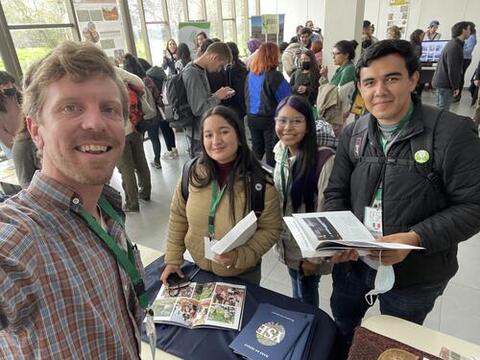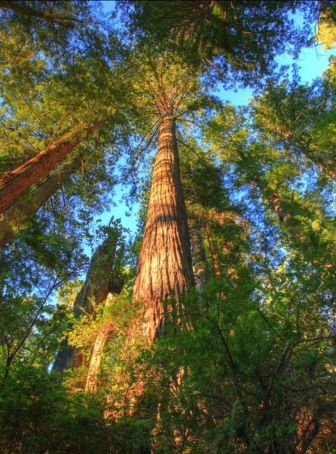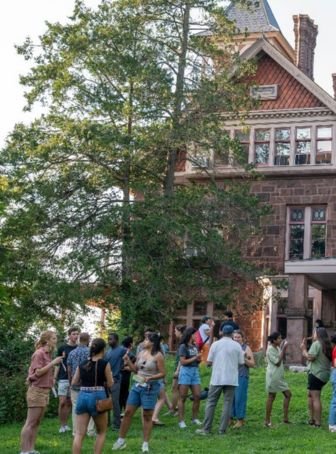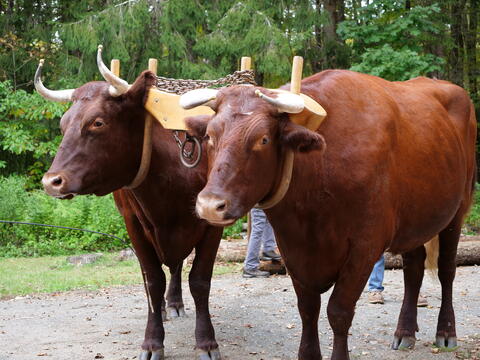
By Nick Nugent ’23 MEM
Nick Nugent ’23 MEM presents at the International Forestry Students’ Symposium in Santiago, Chile as part of IFSA’s 50th anniversary celebration.
Chile is a land of contrasts and contradictions. The Atacama Desert to the north is one of the driest on earth, while the tip of Patagonia is home to unique rainforests ecosystems that are replete with endemic species. The middle stretches of the country contain an array of important native sclerophyllous tree species, their small, thick leaves specially adapted to the more arid conditions between the Andes and the coast.
The country’s social and ecological histories are as varied as the landscape. Centuries of colonial and post-colonial farming practices stripped much of central Chile of its valuable topsoil, leaving the bedrock exposed and eliminating much of the native forest cover. Meanwhile, in the south, Indigenous people such as the Mapuche continue to steward culturally and ecologically important species, such as the magnificent Araucaria araucana.
The 1800s in Chile was a time of silvicultural experimentation. In an effort to revegetate the countryside and start rebuilding soil organic matter, hundreds of exotic species were grown in experimental plots, their growth and survival rates meticulously observed. Over a century later, a few exotic superstars of Chilean silviculture remain: Pinus radiata, Eucalyptus nitens, and Eucalyptus globulus.
This is some of the context discussed this summer at the International Forestry Students’ Symposium (IFSS), hosted by the International Forestry Students’ Association (IFSA) at the campuses of the Pontificia Universidad Católica de Chile and the Universidad de Chile. The symposium brought over 100 forestry undergraduates, masters, and PhD students from around the world to explore the evolution of the social, economic, and ecological dimensions at play in Chilean forests. Participants attended talks by academics and practitioners that explored the complex history and evolving state of Chilean forestry. We learned about innovative attempts to manage plantations for biodiversity, bring Indigenous communities into the management process, and regenerate native forests. The story of human interaction with forests is long and complicated, and finding solutions to ecological challenges is rarely a straightforward process. During brainstorming sessions in Santiago, I discovered how opportunities that bring together passionate people to think through complex issues are critical to the evolution of the industry.
At the symposium, I had the honor of representing The Forests Dialogue on a panel that explored challenges and opportunities in international governance. My co-panelists were an inspiring group of people from around the world that work on international forestry and land use issues, including Selina Abraham (Global Landscapes Forum), Natalia Cisneros (CIFOR), and Peter Moore (FAO). The panelists reflected on personal experience to illustrate the importance of recognizing and managing power dynamics in governance and decision making. While conversations around issues like governance often involve excessive jargon, we tried – perhaps unsuccessfully – to ground our ideas in experience and real-life examples.
Participating in the panel allowed me to share the unique work of The Forests Dialogue, as well as my previous experiences working with a variety of stakeholders in Perú, Kenya, and India. This was a personal exercise in consolidating and verbalizing core learnings from my career thus far. It was also an opportunity to further develop the relationships that The Forest School at the Yale School of the Environment and The Forests Dialogue have with the International Forestry Students’ Association. Shortly after the IFSS event, The Forests Dialogue welcomed IFSA students to a field dialogue in Finland, and IFSA students are encouraged to attend future dialogues. Furthermore, The Forest School is reinitiating its status as an IFSA local chapter to provide opportunities for networking and collaboration among students from across the globe.
While participating on the panel was a valuable experience for me, the real magic of IFSS was a result of the people hosting and attending the symposium. IFSA convened an incredible collection of curious minds from around the world who are passionate about forests and the communities that live in them. After four days of sessions in Santiago, the group headed south on a ten-day tour of Chilean forest ecosystems. Walking through the woods with people who approach forestry from a variety of disciplines and backgrounds is a rich educational experience, and I now have friends from all over who are excited to show me the forests they call home.
One morning near the town of Constitución, we stopped at a forest plot managed by the Chilean government to see a struggling experiment in native forest regeneration. A professor explained the long history of agricultural pressure on the land that eventually pushed Chile to search for any means to rapidly increasing forest cover. The result was the introduction of hardy, competitive exotic trees that to this day define Chilean forestry. “These trees are a miracle. The fact that anything can grow here,” she explained, kicking her boot into the exposed bedrock, “is a miracle.”
We walked uphill past the native tree saplings that researchers are working to regenerate, with nearby eucalyptus and pine racing upward over them, outcompeting. I thought about strategies that could possibly help native biodiversity recover, and as I did so I realized the story of Chilean forestry was unfolding before my eyes. A fellow IFSA member turned to me as he scanned over countless acres of exotic trees. “I don’t see a miracle,” he confessed. “I see an ecological disaster.” Whatever values one applies to the landscape, we must continue to share knowledge and improve our management practices to ensure past mistakes are not repeated.







